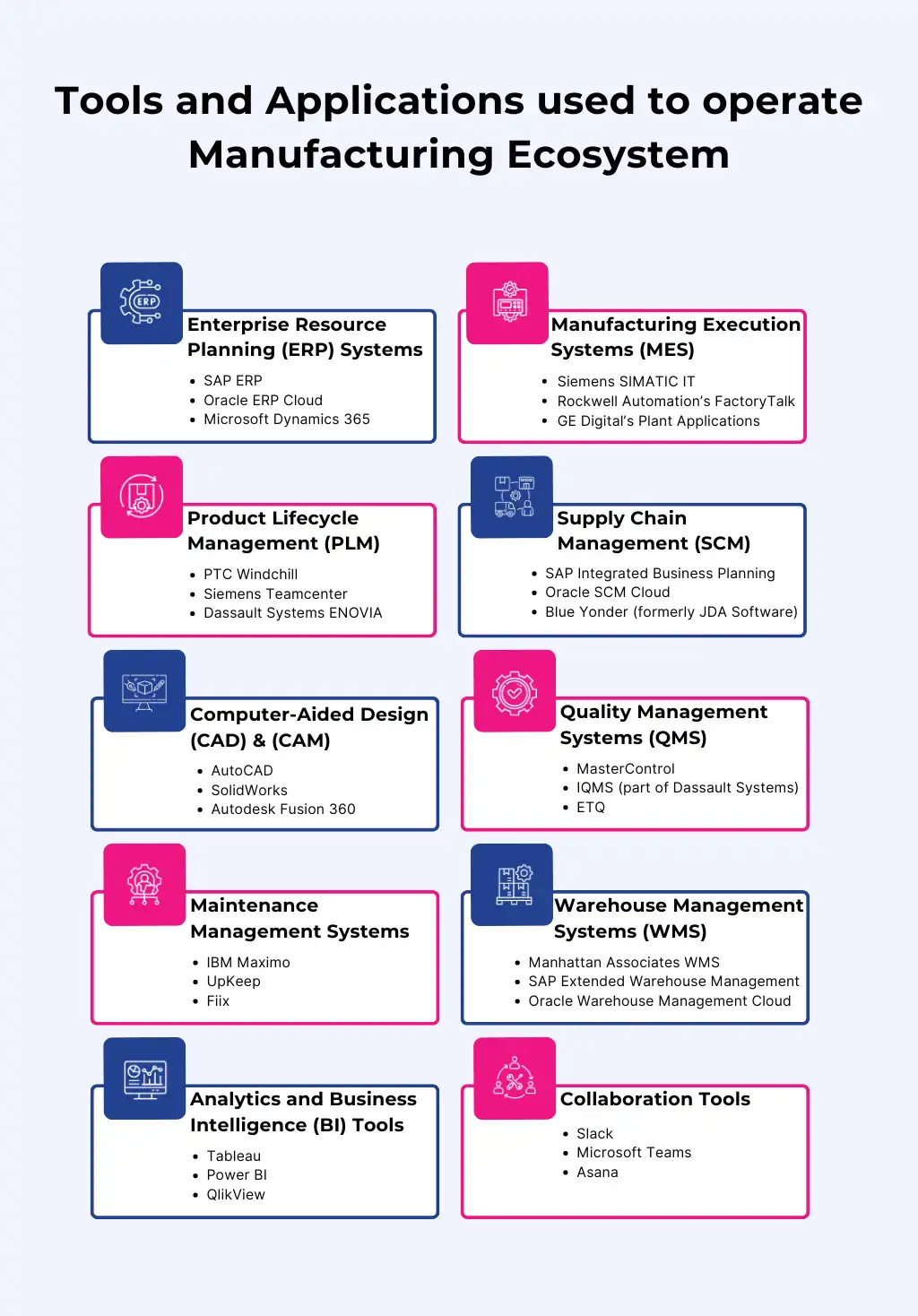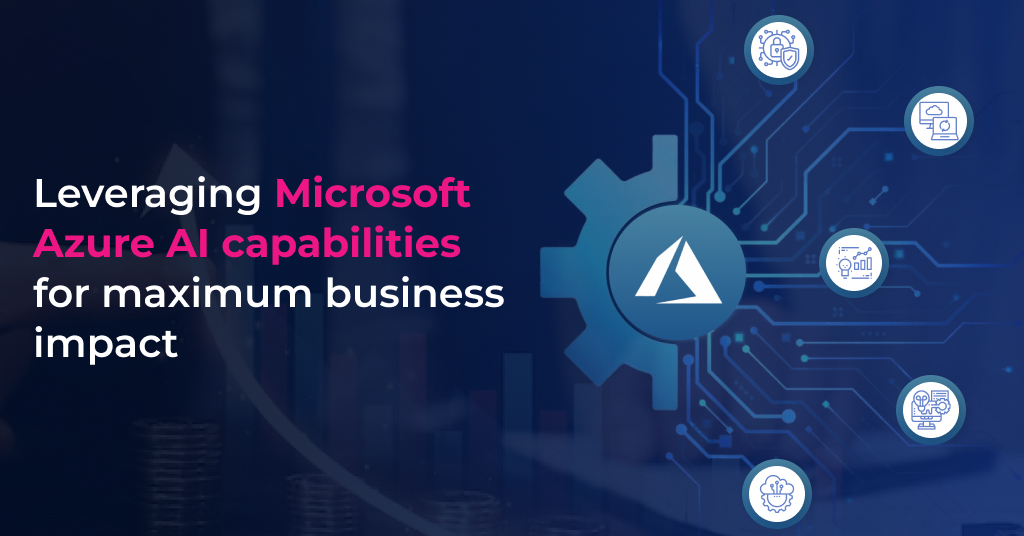We are living in an interconnected world where third-party integrations are the glue that holds everything together for different business needs.
The rise of SaaS products has fueled the need for third-party integrations, promising a frictionless exchange of data between applications.
To meet specific needs, businesses often rely on third-party applications.
Different industries use different applications based on their unique requirements.
The need for using various applications arises from the distinct needs of different departments.
The more functions a business has, the more teams it involves, and consequently, the greater the need for tools to perform day-to-day tasks effectively.
One such industry is manufacturing, where multiple departments work simultaneously to meet diverse needs, all while staying completely in sync.
Ever wondered how they maintain such synergy and keep everything running smoothly year after year?
The answer is simple – by using different applications and tools for different purposes.
Let’s explore some of the applications that keep the manufacturing industry running efficiently.
Common tools and applications used in Manufacturing for different operations
The manufacturing industry relies on a wide range of applications and tools to manage and optimize various operations.

These tools and applications are not only widely adopted but are also specifically customized to meet the diverse needs of the manufacturing industry.
However, they are rarely used in isolation.
Many of these applications are integrated with one another to centralize data for better tracking and analysis.
This manufacturing systems integration process can pose some serious challenges—particularly in 3rd-party integrations.
Let’s explore common challenges faced by the manufacturing industry when integrating disparate systems.
Also Read – Integration of AI and RPA in the Supply Chain and Logistics Industry
Common Challenges in Manufacturing Systems Integration using 3rd party Solutions
Integrating third-party applications in the manufacturing industry can pose several challenges due to differences in technology platforms, data formats, security concerns, and operational complexities.
There are some specific challenges that manufacturers often encounter
1. Compatibility Issues
Manufacturing uses specialized software like ERP, MES, and PLM, each designed on different platforms (like SAP ERP or Siemens MES).
When these systems need to work with others (like SCM or BI tools), it can be challenging because they might use different technologies or versions.
This complexity makes it difficult to ensure seamless collaboration.
2. Data Synchronization
In manufacturing, keeping data synchronized across systems is crucial for managing inventory, production schedules, and quality control accurately.
However, differences in how data is structured or interpreted by different applications can lead to planning errors and operational slowdowns.
Achieving perfect synchronization between these systems is a significant challenge.
3. Security Concerns
Manufacturers deal with sensitive data related to product designs, production processes, and customer information.
Integrating third-party applications increases the risk of data breaches or unauthorized access, especially if robust security measures like encryption and secure APIs are not uniformly applied across all systems.
Ensuring data security across diverse software platforms is critical.
4. Performance Optimization
Manufacturing processes rely on real-time data processing and efficient system performance.
Integrating multiple applications (such as ERP with MES or CAD/CAM) can strain network resources and slow down processing speeds, impacting operational efficiency.
Optimizing performance across integrated systems is essential for maintaining smooth operations on the factory floor otherwise many unwanted issues can arise.
5. Vendor Support and Maintenance
Manufacturers depend on timely support and updates from third-party vendors to ensure system reliability and compliance with industry standards.
However, varying levels of support and service agreements among vendors can affect system uptime and responsiveness, posing challenges in maintaining consistent support across integrated software solutions.
6. Customization and Scalability
Manufacturing operations often require customized software solutions tailored to specific workflows or regulatory requirements.
Balancing customization needs with the ability to scale operations (such as expanding production lines or adding new products is crucial for long-term success.
Flexibly adapting integrated applications to evolving business needs is key but that is often tough to achieve or maintain if third-party system integrations are not done right.
7. Cost Considerations
Integrating different software systems in manufacturing involves significant upfront costs for licenses, customization, and integration.
Ongoing expenses like maintenance and upgrades must be carefully managed to ensure the financial sustainability of integrated solutions without exceeding budget constraints.
If not taken care or pre-evaluated – they can seriously increase the overall cost that can affect organizations negatively!
8. Regulatory Compliance
Compliance with industry-specific regulations (such as FDA for medical devices or ISO standards for quality management) is paramount in manufacturing.
Integrated systems must adhere to these standards to avoid regulatory penalties and uphold product quality and safety.
If not taken care of – there can be some serious issues that can affect the organization’s overall reputation and image as well!
These challenges are just the beginning!
The real issues can be both technical and operational, but the goal of these Third-Party integrations is to harmonize everything.
However, technically, this task is very challenging.
Yet, with proven strategies and solutions, these challenges can be effectively managed to make everything work smoothly!
So, what can be done is the question – which is answered below!
Some Proven Solutions for Common Third-Party System Integration Challenges
It is true that there are certain challenges when it comes to third-party integrations, especially in an industry like manufacturing.
However, there are also some system integration solutions used across the industry by technical experts that have proven to resolve or minimize these issues greatly.
Some of the proven solutions are –
- Customized Integration Middleware – Middleware architecture can be customized to resolve compatibility issues between disparate systems like ERP, MES, and PLM. It facilitates seamless data translation and synchronization, essential for integrating third-party applications without disrupting manufacturing operations.
- API Standardization and Optimization – Standardized APIs streamline communication between different third-party applications. This optimization simplifies data exchange processes, improving integration efficiency across manufacturing workflows.
- Data Mapping and Transformation Tools – Automated data mapping tools ensure accurate translation of data formats between integrated systems. This minimizes errors during integration, enhancing data reliability crucial for quality control and supply chain management in manufacturing.
- Secure Integration Gateways – Implementing secure gateways with robust authentication and encryption protocols safeguards sensitive manufacturing data during integration. This ensures compliance with industry regulations and protects against data breaches, a critical aspect of third-party integration security.
- Performance Monitoring and Optimization – Continuous monitoring of integration performance metrics identifies bottlenecks and optimizes resource allocation. Dynamic scaling of infrastructure supports real-time manufacturing needs, maintaining operational efficiency across integrated systems.
- Vendor Collaboration and SLA Management – Collaborative partnerships with third-party vendors, coupled with clear SLAs, ensure timely support and effective issue resolution during integrations. This minimizes downtime and operational disruptions, crucial for maintaining production continuity.
- Modular Architecture and Scalability – Modular integration architectures enable flexible deployment and scalability of integrated solutions. They support agile development, allowing manufacturing systems to adapt quickly to changing business requirements and technological advancements.
- Regulatory Compliance Framework – A robust compliance framework ensures integrated systems adhere to industry-specific regulations and standards. Regular audits and compliance checks verify adherence, mitigating legal risks associated with third-party integrations in manufacturing.
- Change Management and User Training – Structured change management practices and comprehensive user training prepare manufacturing teams for system transitions. This reduces resistance to change and facilitates seamless adoption of integrated technologies across production environments.
- Continuous Improvement and Innovation – Integrated analytics and business intelligence tools provide real-time insights that drive operational efficiency and innovation in manufacturing processes. This enhances competitiveness and sustainability by leveraging data-driven decision-making capabilities.
These solutions have been used by integration experts across the globe to solve issues faced during and after third-party integrations.
One thing to note
Based on specific needs, IT experts at your manufacturing firm might have to devise custom solutions to ensure smooth operations.
Manufacturing systems integration or integrating third-party systems to bridge the existing ones in use becomes essential but hard for a person lacking development exposure.
Consulting a team with experience in various integration processes and offering third-party software integration services, these problems are quickly identified and resolved as needed.
Additionally, continuous monitoring is essential to identify potential bottlenecks that may not appear initially but could arise and affect performance later.
The crux of this problem is that issues can appear at any time.
So more than any other solution – there is a need to have integration experts by your side.
If you are facing similar challenges,
Invest some time in finding the right team or expert who can provide the right solutions for the troubles you face.
Looking for a team to integrate your Manufacturing Software Systems?
You dropped at the right spot!
Our Integration Experts can help you;
- Connect various software you use
- External Software Integration
- Bridge Compatibility Gaps
- Optimize Software Performance
- Provide Reliable Support
- Customize and Scale
So, don’t let integration challenges hinder smooth operations.
Connect with us – let us evaluate your situation to assess whether you need minor fixes or a bespoke solution!







